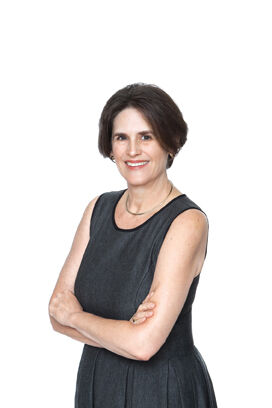
Oncosec CEO Daniel O’Connor
Ever since Oncosec, a biotech company that is developing immunotherapy treatments for cancer, moved its headquarters from California to Pennington last year, the company has launched new drug trials, expanded its staff, and raised millions in capital. Investors are skeptical of the company’s efforts, as Oncosec stock has lost two-thirds of its value in the last year.
Nevertheless, CEO Daniel J. O’Connor says the company is pushing ahead with a trial intended to demonstrate the life-extending ability of its drug, Tavo, when delivered together with Merck’s Keytruda, an already-approved immunotherapy agent, against patients with late-stage melanoma that has resisted conventional treatment and even other forms of immunotherapy. If the trial is successful, it could be evaluated under the FDA’s accelerated review program for orphan drugs.
“The Keynote 695 study (Keynote being the designation Merck gives to Keytruda studies) is important because it has the potential, if successful, to give us the opportunity to make Tavo available to patients,” O’Connor says.
Oncosec’s product combines two factors: the therapy itself, and a unique delivery method. “It’s a marriage between physics and biology,” O’Connor says.
Like other immunotherapy drugs, Tavo doesn’t destroy tumors directly. Instead, it causes tumors to produce a naturally occurring interleukin called IL-12, which makes the cancer cells vulnerable to the body’s own immune system. Tavo does this by introducing plasmids — snippets of DNA — into the cancer cells, which changes their genetic makeup and causes them to produce IL-12. “It’s something the body already makes, but in the case of a tumor, that element is missing,” O’Connor says. “A good metaphor might be putting yeast back into a cake.”
O’Connor says he hopes that Tavo’s anti-cancer powers will be amplified by combining it with Keytruda, an immunotherapy agent that attacks the mechanisms that normally protect cancer cells from immune system response.
A unique aspect of Tavo is the means by which it is delivered. Before injecting Tavo into a tumor, a six-pronged microneedle electrical probe is inserted into the tumor and electricity applied — enough to cause the cell walls of the tumor to become more permeable, but not enough to be painful to the patient.
A syringe full of billions of plasmids immediately follows the electrical probe. Large tumors might require multiple injections. O’Connor says once the tumor cells start producing Il-12 there is a cascade effect that can affect cancer cells throughout the body, not just in the tumors.
O’Connor says about 180 patients so far have been given courses of Tavo, for a total of hundreds of doses, with few “adverse events” reported, mostly minor. The most severe complications patients encountered were two skin infections treated with antibiotics. “The safety profile that’s emerging is very compelling,” O’Connor says.
But does it work? It’s too early to say. Only about 20 patients have been evaluated so far in studies. After three months of treatment, one person saw their tumors completely go away, while in five patients, they had begun to shrink. From such a small sample size, it is impossible to get an idea of how effective the treatment is.
However, O’Connor is encouraged by the results so far. “I think it tells you the trajectory we are on,” he says.
Any success is especially noteworthy because the treatment is being given to patients who have already tried immunotherapy without success. Their tumors are what researchers call “immunologically cold,” meaning they are not responsive to immune-system-based treatments. If Tavo works, it could be because it is successfully turning those “cold” tumors hot. “Patients who, after multiple rounds of Keytruda, saw their tumors growing, a couple of weeks later received Tavo and saw their tumors shrink,” O’Connor said.
If the results of this trial are positive, O’Connor says, future trials would give Tavo to patients at an earlier part of their cancer treatment, when interventions are more likely to be effective. Attacking tumors at the late stage is extraordinarily difficult. “You are trying to reverse a process that has been going on for years and doctors have been trying to stop the disease with everything that is available to them.” Unproven experimental drugs such as Tavo are only given as a last resort.
Around three-quarters of the patients enrolled in the trials are located in Australia, where Oncosec has set up a subsidiary office. This is partly due to Australia’s high rate of melanoma due to its sunny climate, and partly due to generous subsidies that Australia offers to biotech companies. O’Connor said Oncosec has gotten back about 44 cents of every dollar it has spent on research in Australia.
So far Tavo has only been used to treat melanoma, partly because melanoma tumors are found on the surface of the skin, where the electrical probe can penetrate. Deeper tumors are unreachable with the technique. But Oncosec is working on changing that by developing a “visceral lesion applicator” that could reach tumors in places such as the pancreas. It is a re-engineered device that has been ultra-miniaturized and fits on the end of a catheter, using the same technology as biopsy devices.
O’Connor says the company plans to test this device next year.
Another clinical trial currently underway is testing Tavo’s effectiveness against triple negative breast cancer, that is, breast cancer that lacks the three most common types of receptor that fuel breast cancer growth, and therefore does not respond to the most common treatments. Oncosec is currently enrolling patients in its TNBC study. (For information on clinical trials, patients can visit www.clinicaltrials.org.)
The pace of research has increased since O’Connor became CEO of Oncosec in 2017. He also brought in about $40 million in capital, some from a Korean investment firm and some from a stock offering last January. While the stock price has fallen since then, this infusion of capital allowed the company to ramp up its trials.
To support this effort, the company also hired industry veterans to oversee the trials. Most of Oncosec’s staff are located in the Pennington office, which currently employs about 11 people, though O’Connor says he expects more hires in the near future.
O’Connor said he chose to relocate the company’s headquarters to New Jersey partly due to the talent pool of people with experience bringing drugs to market. “New Jersey is still the medicine chest of the world,” he said. He also cited the Economic Development Authority’s TNOL program, which allows research companies to sell their operating loss tax credits for cash.
OncoSec, 24 North Main Street, Pennington 08534. Daniel J. O’Connor, CEO. www.oncosec.com.
























